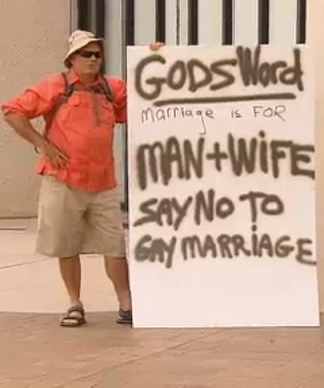Hasty nuptials planned before Feds spoil party
 Australia will see its first ever government-sanctioned same-sex marriages this weekend, but they could also be the last if the Federal Government has its way.
Australia will see its first ever government-sanctioned same-sex marriages this weekend, but they could also be the last if the Federal Government has its way.
The High Court has decided to reserve its decision on the Commonwealth’s challenge to the legality of the ACT’s newly-passed same-sex marriage laws. It will hand down its decision next Thursday, allowing marriages to go ahead in the meantime.
The key point of the Commonwealth’s challenge says that the ACT’s same-sex marriage law contravene the Federal Marriage Act, which explicitly states marriage can only occur between a man and a woman.
So far, forty-seven couples have lodged papers to get hitched, many will be hoping to tie the knot tightly before the Coalition can rush up and undo it.
In proceedings this week, the Commonwealth Solicitor-General Justin Gleeson told the High Court that marriage is the union between a man and a woman, and the Federal Parliament has the right to define marriage in Australia.
“The ACT sought to argue that the ACT marriage laws should be held to be valid because it governed only same-sex relationships and that wasn't in conflict with the Federal Marriage Act,” Australian Marriage Equality's lawyer Anna Brown says, suggesting both forms of union can co-exist without inferring with each other.
Similar bills have recently been defeated in Tasmania and New South Wales, with the latter moving against the progressive policy by just one vote.
It is still unclear what the actual risks of allowing non-heterosexual couples to marry each other might be. A large amount of opposition seems to stem from religious groups, despite the leader of the Catholic Church telling members he is (and therefore they are) in no position to judge gay people, and that the Church should not have “locked itself up in small things, in small-minded rules.”
The leader of the Commonwealth and the Church of England, Queen Elizabeth II, has given her approval on gay marriage too - making those who remain opposed to it appear less progressive than the 87-year-old leader of a monarchy from the 9th century.








 Print
Print